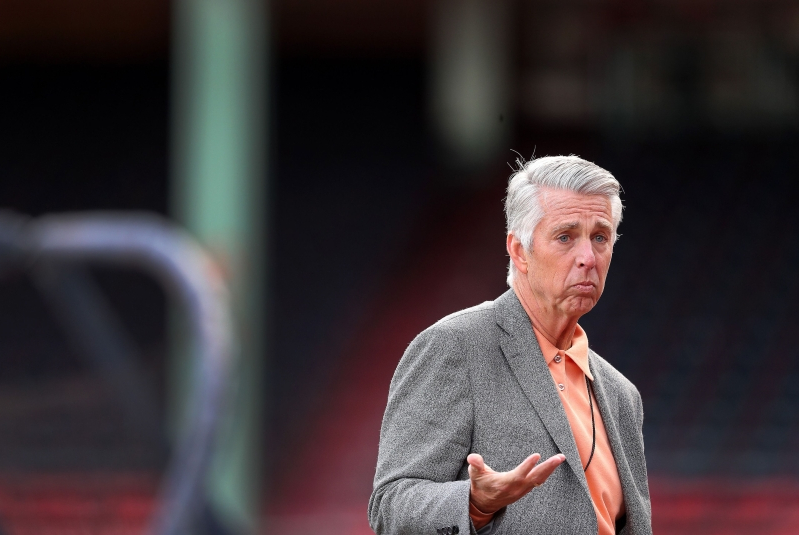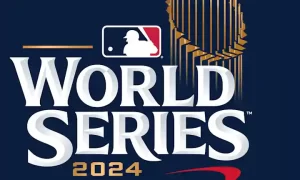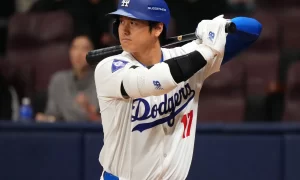Dave Dombrowski and the End of Big-Budget Baseball

In today’s “what have you done for me lately” professional sports environment, coaches and executives are being fired at a higher rate than ever before. Failure to show improvement over the course of a season or two can prove fatal for the job hopes of an entire front office. With an ultimate goal of capturing a championship, winning is often held as the end all-be all, and rightfully so.
Perhaps that’s what made Dave Dombrowski’s ousting from the Boston Red Sox last Sunday so shocking.
Just over 45 weeks ago, Dombrowski’s Sox were at the pinnacle of the baseball world. A 108-win championship season cemented their place not just as World Series winners, but as arguably the greatest team to ever play at Fenway Park. Fast forward to now, and the Red Sox are a shell of their former selves, buried in the Wild Card standings with little hope at playing meaningful baseball down the stretch. Can such a rapid fall-off be pinned solely on one person?
Red Sox owner John Henry has yet to answer any real questions regarding the “resignation” of Boston’s former President of Baseball Operations. However, it remains clear that the club views the 2019 season as a major problem, and a signal that change is needed to keep the team relevant going into 2020. Drastic drop-offs in pitching are primarily to blame for the on-field debacle in Beantown this year, yet a boatload of potentially hampering contracts are just as much a cause for concern for any Sox fan.
Dombrowski’s front office made major headlines last offseason for doubling down on Boston’s current core. Mega-deals for ace Chris Sale and All-Star shortstop Xander Bogaerts were announced just a week before the regular season, while World Series standout Nathan Eovaldi was retained on a four year/$68 million dollar contract. Even though these signings were generally viewed well, the Red Sox did so at the cost of improving their relatively weak bullpen, choosing not to bring back star closer Craig Kimbrel.
This inaction on the reliever market is what most casual fans will point to as the main reason for Dombrowski’s downfall, and their performance this season justifies such a notion. However, history may view the Sale and Eovaldi deals in a more negative light.
Sale, who will begin his five year/$150 million dollar contract next season, was having an uncharacteristically poor season in 2019, pitching to a 4.40 ERA and a win-loss record of 6-11 in under 150 innings. Then, the lefty was sidelined yet again with a second-half injury, continuing a disturbing trend that has lasted throughout Sale’s tenure in Boston. Eovaldi has been even worse, pitching to an ERA nearing 6, bouncing around the ‘pen and the rotation, and dealing with recurring arm problems of his own.
Obviously, the two signings in question have Boston’s future up in the air. Although there were plenty of naysayers, the general consensus was to trust in Dombrowski’s talent evaluation skills. In turn, the most expensive team in the league may now be stuck with two untradeable deals. Yet, this alone isn’t the main reason for Dombrowski’s release.
Dave Dombrowski has long utilized his financial resources, in both Boston and Detroit. Back when he was first named Tigers GM, spending big was still very much the norm. Flashforward to 2019, and he may very well be the last of a dying breed. As analytics-focused rebuilds rage on for years upon years under the same regimes, high-rollers may now feel pressure like never before.
As we move past Moneyball and into the Statcast era, it seems ridiculous to shell out around $3 million per win. Baseball is a business after all, and the only way that a nearly quarter-billion dollar investment can be justified in today’s game, with such easily accessible information, is to be a consistent winner. A failure like the Red Sox this season isn’t just disappointing; it’s financially damaging.
In ending Dombrowski’s time in Boston, the Red Sox may have closed the door on something else entirely. Major League Baseball has reached a tipping point, where big spenders lack the benefit of the doubt, while cost-efficient enterprises have the financial freedom to occasionally falter.
When a high-priced team fails, they often fail hard. The Red Sox are still paying Hanley Ramirez, Rusney Castillo, and Pablo Sandoval, none of whom are currently on their 25-man roster. FREE RUSNEY! Granted, none of those deals were made by Dombrowski, but his potential mistakes in Sale and Eovaldi have put Boston in a compromising position. At this point, they can’t afford to make another bad deal if they wish to stay competitive.
There lies the dilemma when hiring someone who will do whatever it takes to win now. For a team like the Padres, this may simply mean using prospect capital to nab established players. For big market teams, it doesn’t stop there; anything that can be used to potentially improve the on-field product will likely be utilized.
It’s doubtful that the Red Sox hoist the World Series trophy last season without Dombrowski. Both his big-budget signings and savvy deals for lesser-known role players proved crucial in constructing a championship-caliber team. Boston should be glad he was willing to pull the trigger at a time when many executives remain wary of marquee moves. Now, the team must exercise some restraint and rebuild their depleted farm system and spending power, a task that may take more time than fans might like, and a task ill-suited to their former President’s skills.
Whether his firing was right or wrong, or what caused it, Dave Dombrowski wasn’t going to last in Boston if the team wasn’t playing up to expectations. While his ambition and desire to spend big earned the Red Sox a ring, it may have inadvertently helped push him out. However you look at it, one can’t help but feel that the shoe is now on the other foot: big spenders are being scrutinized more heavily than ever, while smaller spenders raise fewer questions. Regardless, Dombrowski was a risk-taker, albeit a flawed one, and it’s doubtful that we’ll see many more like him now or in the future.
-Bryan Armetta
















